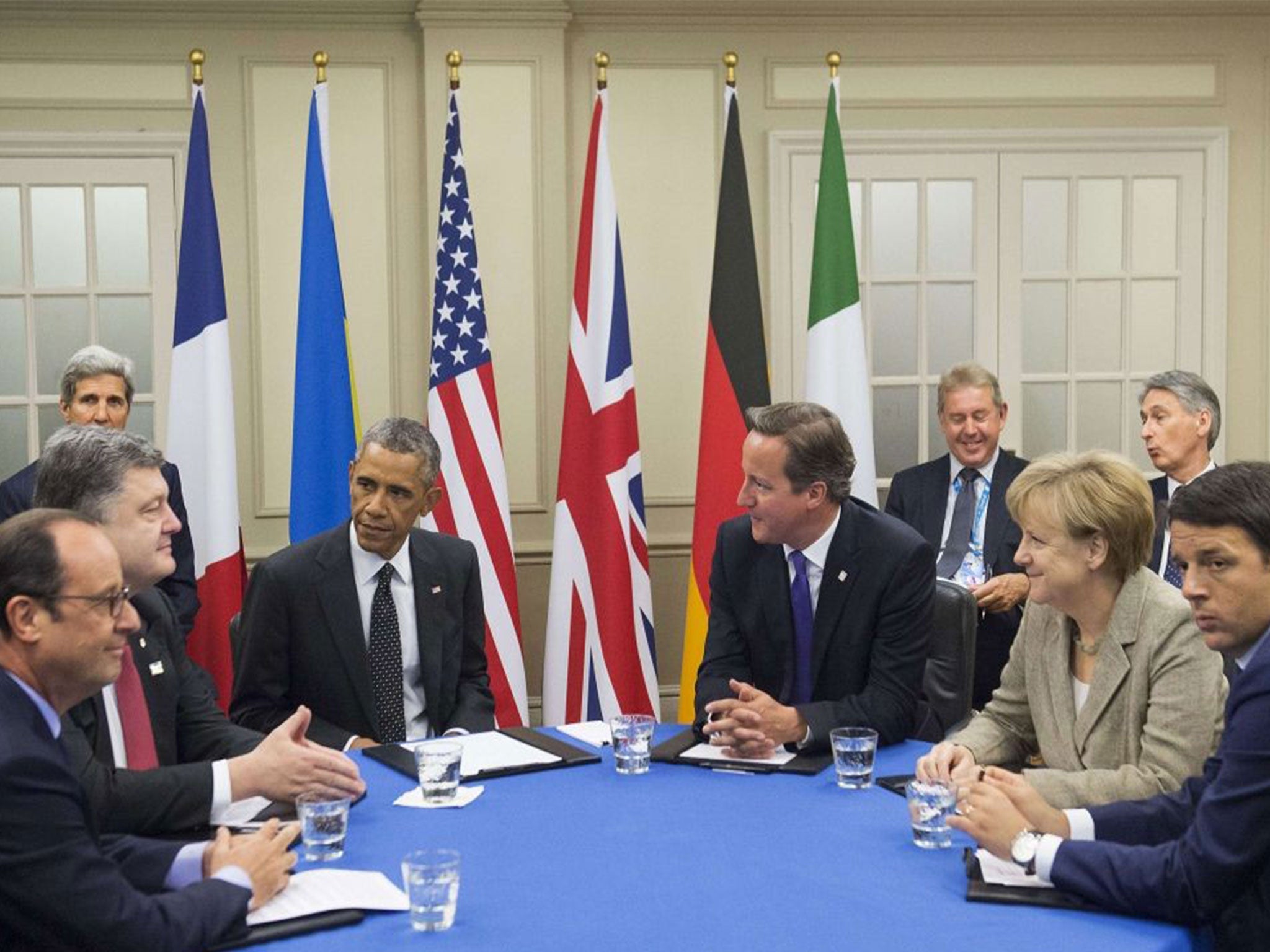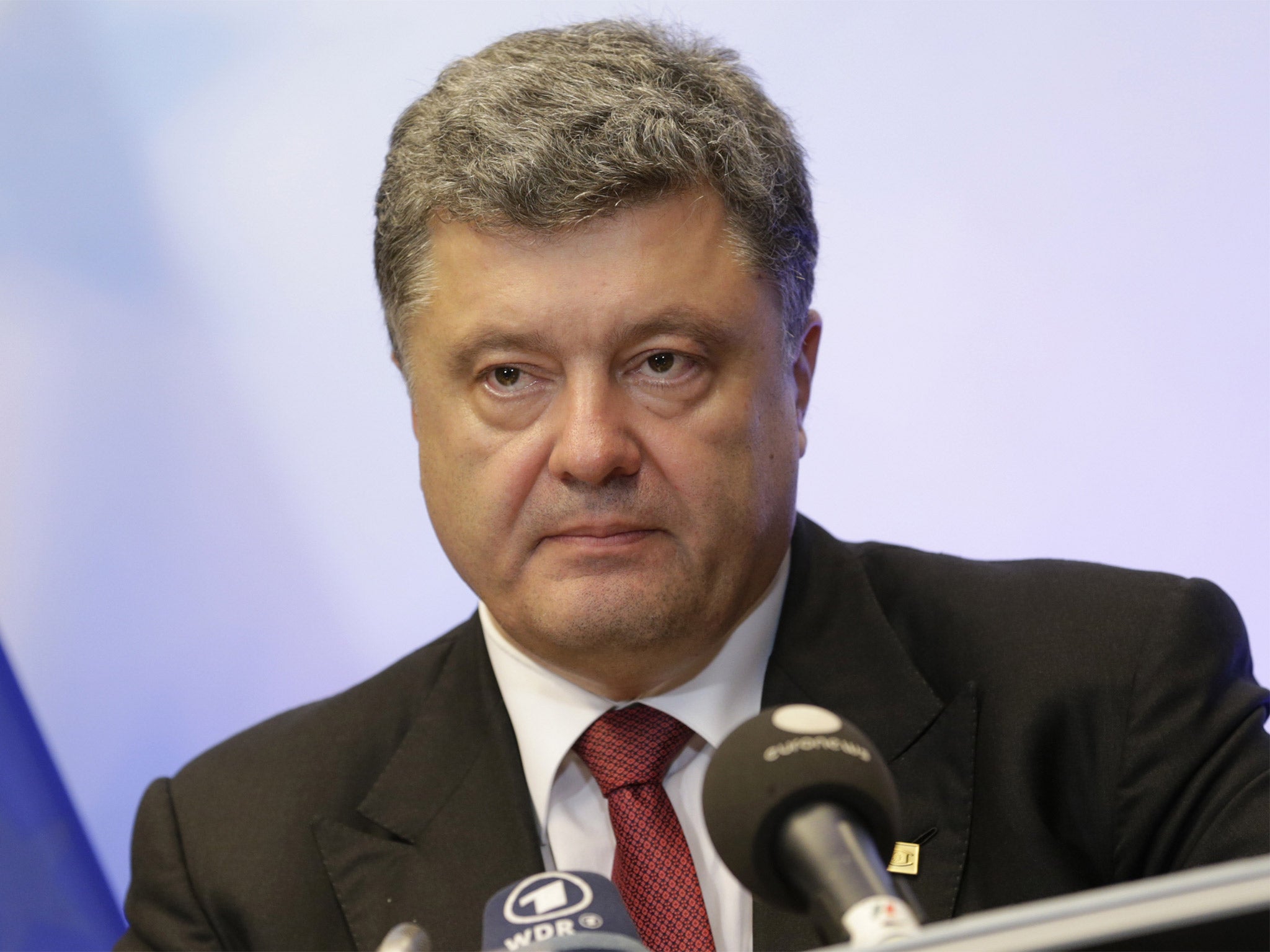Russian anger as Ukraine moves towards joining Nato with historic vote
Kiev championed greater integration but Russia called it 'counterproductive'

Your support helps us to tell the story
From reproductive rights to climate change to Big Tech, The Independent is on the ground when the story is developing. Whether it's investigating the financials of Elon Musk's pro-Trump PAC or producing our latest documentary, 'The A Word', which shines a light on the American women fighting for reproductive rights, we know how important it is to parse out the facts from the messaging.
At such a critical moment in US history, we need reporters on the ground. Your donation allows us to keep sending journalists to speak to both sides of the story.
The Independent is trusted by Americans across the entire political spectrum. And unlike many other quality news outlets, we choose not to lock Americans out of our reporting and analysis with paywalls. We believe quality journalism should be available to everyone, paid for by those who can afford it.
Your support makes all the difference.Ukraine has moved towards joining Nato, angering Russia at a time when the Kremlin already views its eastward expansion as a security threat.
Parliament voted overwhelmingly to renounce the country’s “non-aligned” status on Tuesday, which maintained a neutral military and political status.
Speaking before the ballot, Ukrainian Foreign Minister Pavlo Klimkin said the decision underscored the country's increasing co-operation with Europe and the West.
“This will lead to integration in the European and the Euro-Atlantic space,” he said.
But his Russian counterpart, Sergei Lavrov, called the step “counterproductive” and said it would provoke tension in war-torn eastern Ukraine.
“It will only escalate the confrontation and creates the illusion that it is possible to resolve Ukraine's deep internal crisis by passing such laws,” Mr Lavrov said, according to the TASS news agency.

Although Ukraine pursued Nato membership several years ago, it declared itself a non-bloc country after Russia-friendly Viktor Yanukovych became president in 2010.
The latest vote comes as conflict continues between pro-Russian rebels and the Ukrainian government in eastern Ukraine, despite a truce signed in September.
The amendment, proposed by President Petro Poroshenko, passed easily with 303 votes to nine - 77 more than the minimum required to pass into law.
Kiev first announced its intention of seeking the protection of Nato membership in August, following Russia’s suspected involvement in the Ukrainian crisis.

Nato – short for the North Atlantic Treaty Organisation – was founded by Britain, the US, France and other allies at the start of the Cold War and has expanded gradually to include 28 members
Accession to the alliance is likely to take years, but a Nato spokesperson in Brussels said the “door is open”.
“Ukraine will become a member of Nato if it so requests and fulfils the standards and adheres to the necessary principles,“ he added.
Relations between Moscow and Kiev are at an all-time low since Russia's annexation of the Crimean peninsula from Ukraine in March and the subsequent outbreak of the pro-Russian rebellion in the east.
Pro-Western authorities in Kiev accuse Russia of orchestrating and arming the uprising after the overthrow of President Yanukovych, but the Kremlin denies that it is behind the revolt.
Nato claimed to have evidence of Russian involvement in the conflict, publishing satellite images of what it said was Russia soldiers and artillery in eastern Ukraine in August.
The alliance has strengthened its air presence in the Black Sea as well as its Baltic Air Policing mission throughout the Ukrainian conflict and has reported “near misses” between member states and Russian jets.
Nato has conducted more than 100 intercepts of Russian aircraft in 2014 - three times more than were conducted in the whole of 2013 – and increased tensions prompted Finland’s President to warn that Europe was being pushed to the brink of a "new kind of Cold War".
Additional reporting by agencies
Join our commenting forum
Join thought-provoking conversations, follow other Independent readers and see their replies
Comments